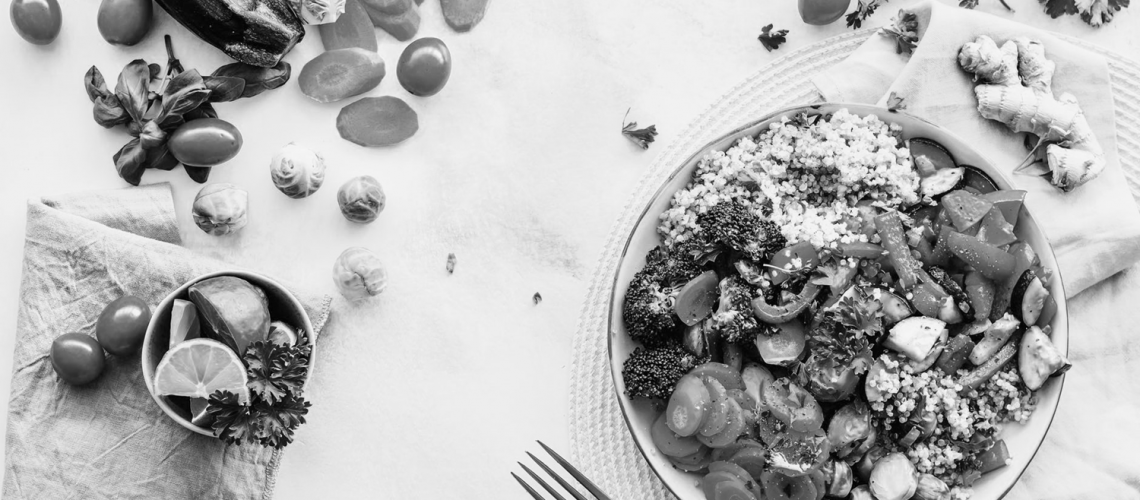By Natascha Olivier – Dietician and Lactation Consultant
The Covid-19 virus and accompanying lockdown has left us with many questions and uncertainties, and has resulted in numerous changes in routine for us. You can’t (shouldn’t) go grocery shopping on a daily basis, and you are confined to your home and garden. Below are a few tips to stay healthy during lockdown:
- Continue eating a healthy diet and include lots of fruit and vegetables. Fresh fruit and vegetables, while still available, may be a little harder to obtain during this time. Frozen fruit and vegetables are also healthy options, and may even contain more micronutrients than their fresh counterparts. Frozen mixed veggies and stir fry mixes can be incorporated into many dishes, and peas, sweet corn and blue berries are also great as frozen snacks for children older than 18 months. Although canned vegetables may contain a little more sodium, they are still a good option, and can be rinsed before use if necessary. Choose canned fruit in fruit juice rather than syrup for a lower sugar version. This is also a great time to start a vegetable garden from seeds or seedlings, and you can teach your children what fresh fruit and vegetables really look like – they do not grow peeled and perfectly cubed in plastic bags! Sugar snap peas, tomatoes, carrots, spinach, cabbage, strawberries and herbs are easy and fun to grow.
- Stick to a meal and snack time routine or schedule, and don’t skip meals. Boredom often results in mindless eating. Schedule a meal or snack every 2 to 4 hours, starting the day with a healthy, filling breakfast, followed by a mid-morning snack, lunch, a mid-afternoon snack, dinner, and an optional bedtime snack. Meals should contain half a plate of fruit and vegetables, a quarter of a plate of healthy, wholegrain starch (oats, wholegrain toast or tortilla, sweet potato, brown rice, quinoa, bulgur wheat, etc), and a quarter of a plate of lean proteins (legumes, chicken, fish, lean meat, eggs, etc.). Snacks should contain a protein and fat (cheese, peanut butter, boiled egg, yoghurt etc.) and fibre (fruit or vegetables, provita biscuits, wholegrain toast, etc) to keep tummies fuller for longer. Encourage everyone to drink lots of water, as dehydration may present as excessive hunger.
Remember that snacks are a necessary part of kids’ diets, and not something to be earned through chores or exercise! A void packing and displaying a box of daily snacks with the notion that “once they’re gone, they’re gone”. Keep in mind that children pick up on our anxiety and may be scared or uneasy – they need to know that they are safe, and that they will get enough food.
- Plan your meals, and consider drawing up a plan of the week (or 3 weeks’) meals. This helps to ensure a good variety, makes (planning for) grocery shopping much easier, and reduces anxiety (preventing unnecessary stock piling and hoarding). Remember that you can order groceries online from Woolworths, Pick ‘n Pay and other shops to avoid leaving the house. Use what you have first, and use leftovers for lunch the following day. Pantry staples may include legumes (lentils, beans and peas can be added to salads, poke bowls and soups), starches (bulgur wheat, quinoa, couscous, pasta, flour for bread, etc.) and veggies (butternut, sweet potatoes, gem squash, onions keep well in a cool, dark place). I usually start with my proteins for the week (meat-free, chicken, fish and beef/pork), then add vegetables or salad, and complete each meal with a starch.
- Involve your family in the kitchen. Babies can play with measuring and wooden spoons, bowls and pots. Toddlers can help by adding dry ingredients to a bowl and mixing it. Young children can help cutting ingredients with a blunt knife. Use this as a time to connect, talking about colours, textures, and counting ingredients, tasting the flavours, etc. It may be messy, and will probably take quite a bit longer than usual, but you’ll be making memories and teaching your children the love of food and cooking. And your child might just surprise you and taste a food he/she’d never touch – just because today they prepared it themselves!
- Health doesn’t just centre around the food you eat, but also the ways in which you move your body. Lockdown might make you a little (or a lot) more creative! Build obstacle courses using boxes, tables, chairs, couches, hula hoops, etc. Design a treasure hunt, either in the garden, or through the rooms of your house. Jump, run, roll, somersault, hop on one leg, throw or kick balls, but make sure your children (and you!) do something to burn all of that energy numerous times a day!
Lastly, remember that no immune booster, supplement, diet or lifestyle modification, other than social distancing and proper hygiene, can prevent you from being infected with the COVID-19 virus specifically. Follow the rules regarding lockdown, wash your hands regularly, eat well, get some exercise, sleep enough and stay safe! Follow my page (www.facebook.com/lactationdietitian) for more info, snack ideas, etc. and have a look at my webpage (www.lactationdietitian.co.za) for other services that can assist you.

#sleeptraining

